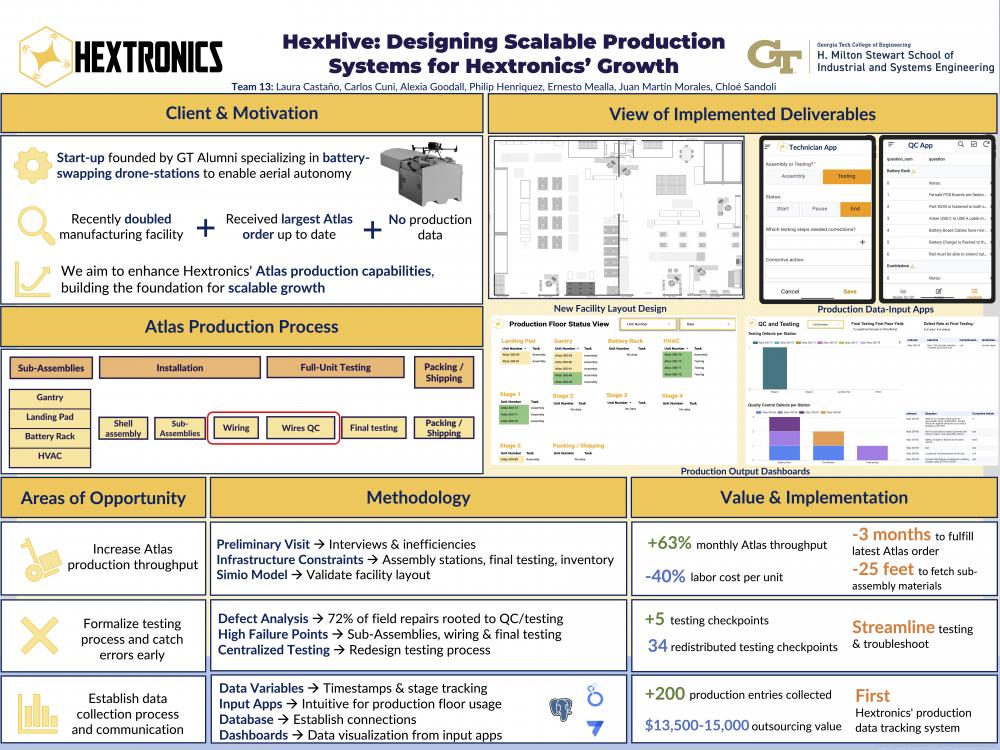Client Context
Hextronics is a Georgia Tech alumni-founded startup that manufactures battery-swapping drone stations to support autonomous aerial operations. With recent growth, the company doubled its production facility and received its largest order to date for its Atlas station. However, the Atlas production process lacked formalized procedures, production data, and faced inefficiencies in layout, communication, and quality control.
Project Objective
The objective was to enhance Atlas production throughput while laying the groundwork for scalable operations. Key opportunities identified included redesigning the facility layout, formalizing the testing process to reduce field defects, and implementing a data collection system to improve traceability, communication, and performance monitoring.
Design Strategy
Our methodology combined on-site interviews and observations with infrastructure assessments to identify constraints and inefficiencies. We developed a Simio simulation model to validate layout improvements. Data input applications were created for floor technicians and quality control personnel to collect production data, which feeds into a centralized database and dashboard system for real-time monitoring and analysis.
Deliverables
The project deliverables included a redesigned facility layout aimed at reducing material travel and improving overall production efficiency. To support data-driven operations, we developed technician and quality control (QC) input applications tailored for intuitive use on the production floor. These apps feed into a centralized database, enabling the creation of real-time dashboards to visualize key production metrics. Additionally, we restructured the testing process by redistributing 34 testing checkpoints to streamline quality control and improve defect detection. To ensure long-term sustainability, we provided comprehensive documentation outlining the new procedures and data workflows, facilitating consistent implementation and future scalability.
Value and Impact
The project deliverables included a redesigned facility layout aimed at reducing material travel and improving overall production efficiency. To support data-driven operations, we developed technician and quality control (QC) input applications tailored for intuitive use on the production floor. These apps feed into a centralized database, enabling the creation of real-time dashboards to visualize key production metrics. Additionally, we restructured the testing process by redistributing 34 testing checkpoints to streamline quality control and improve defect detection. To ensure long-term sustainability, we provided comprehensive documentation outlining the new procedures and data workflows, facilitating consistent implementation and future scalability.


